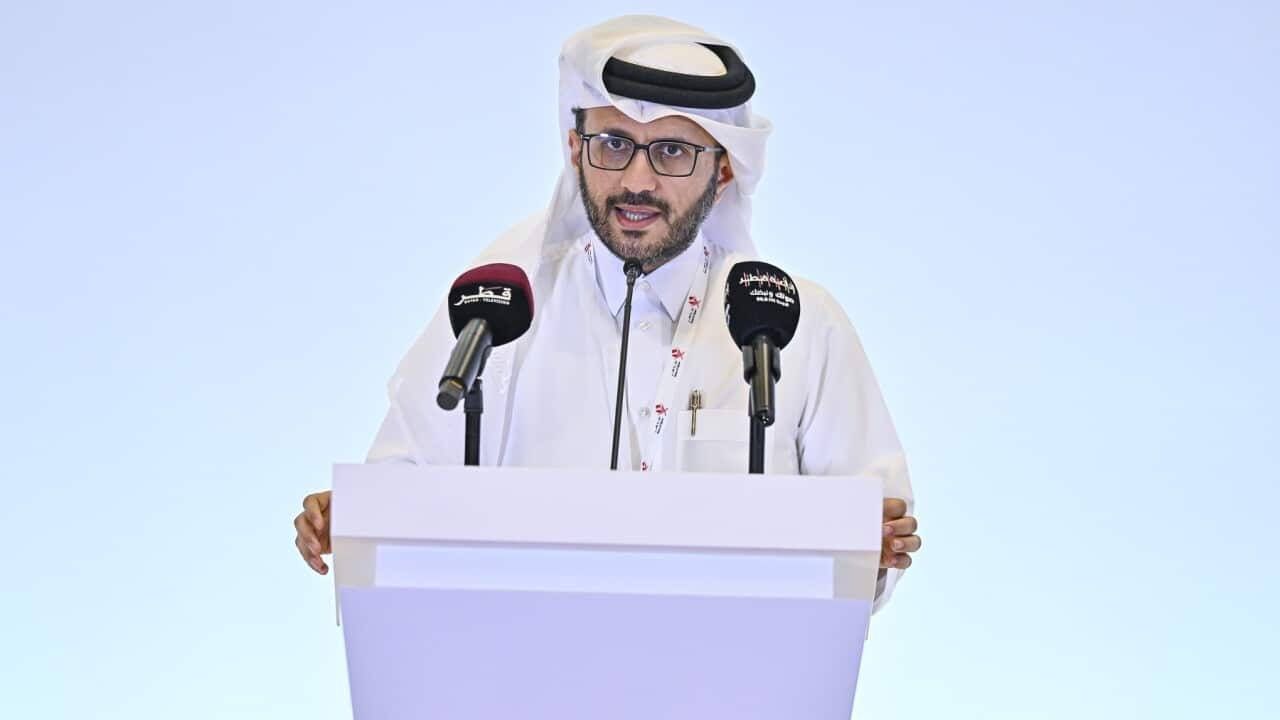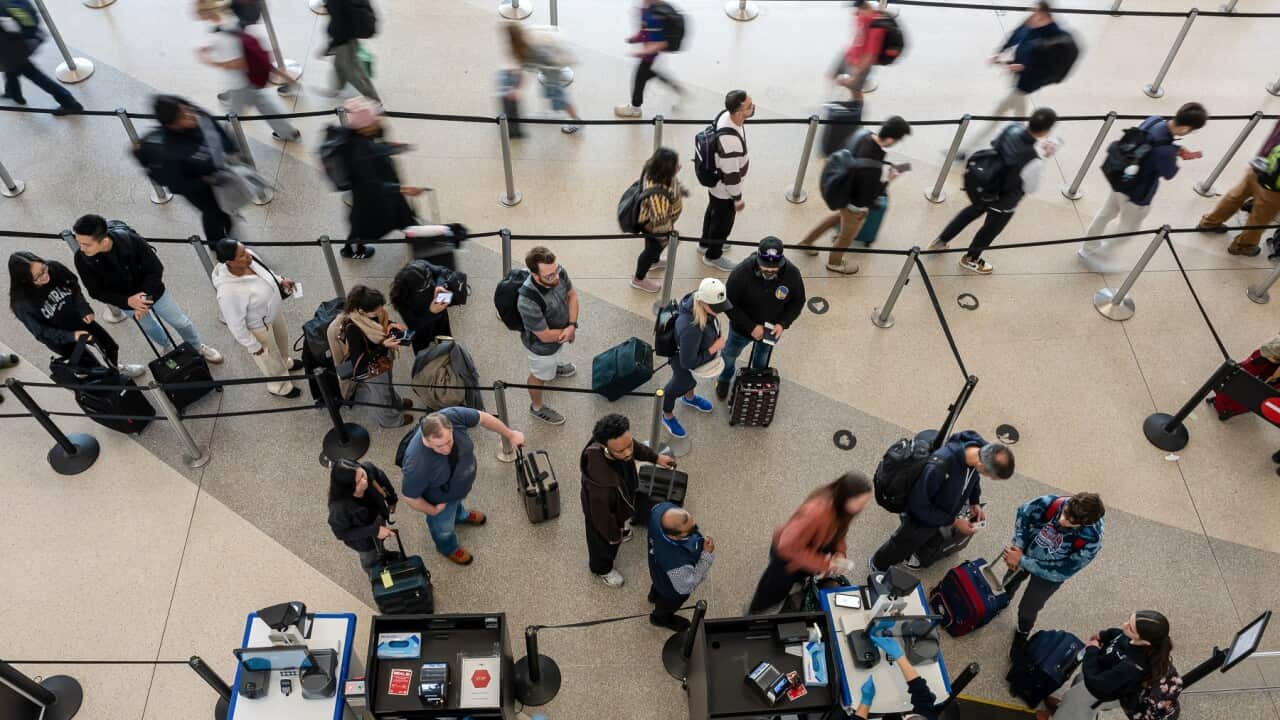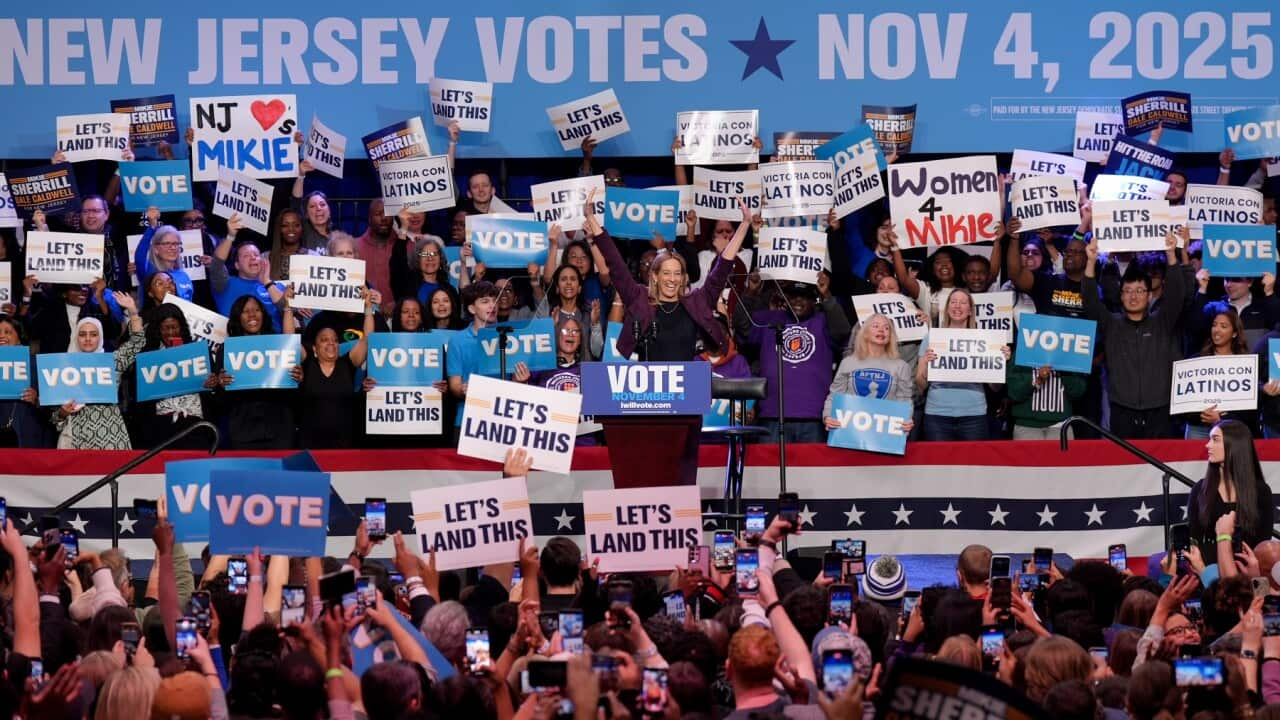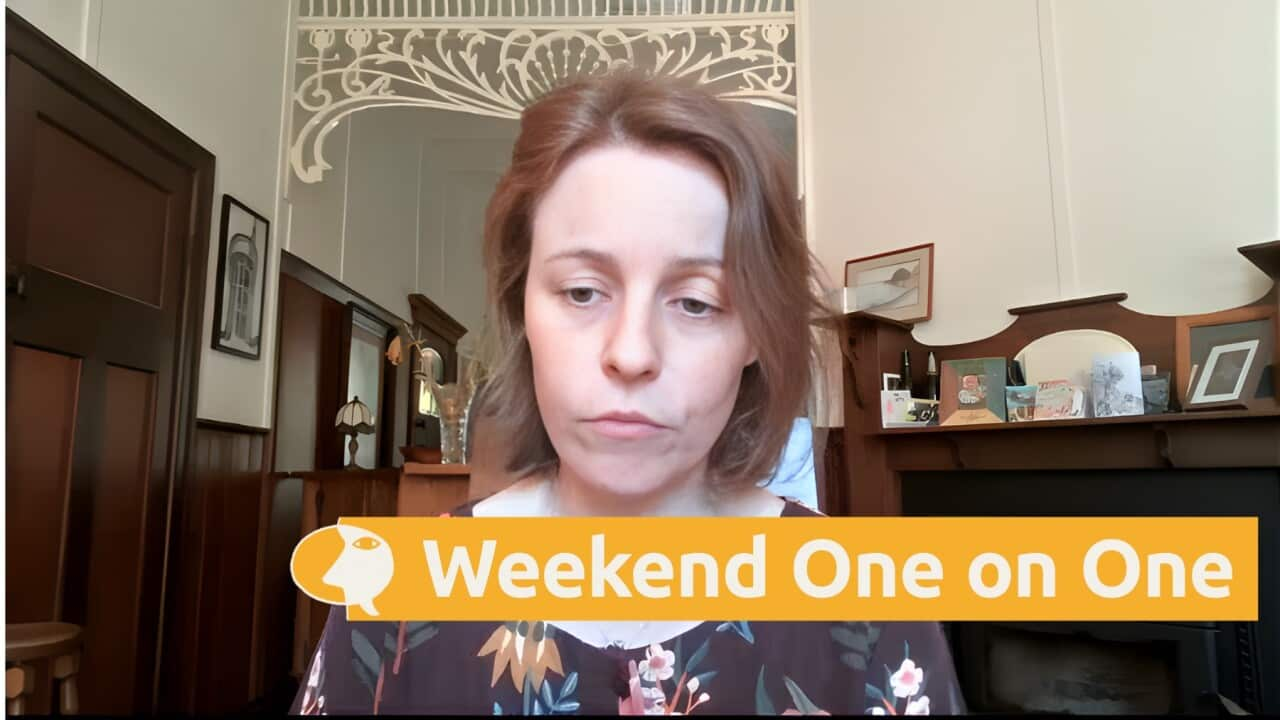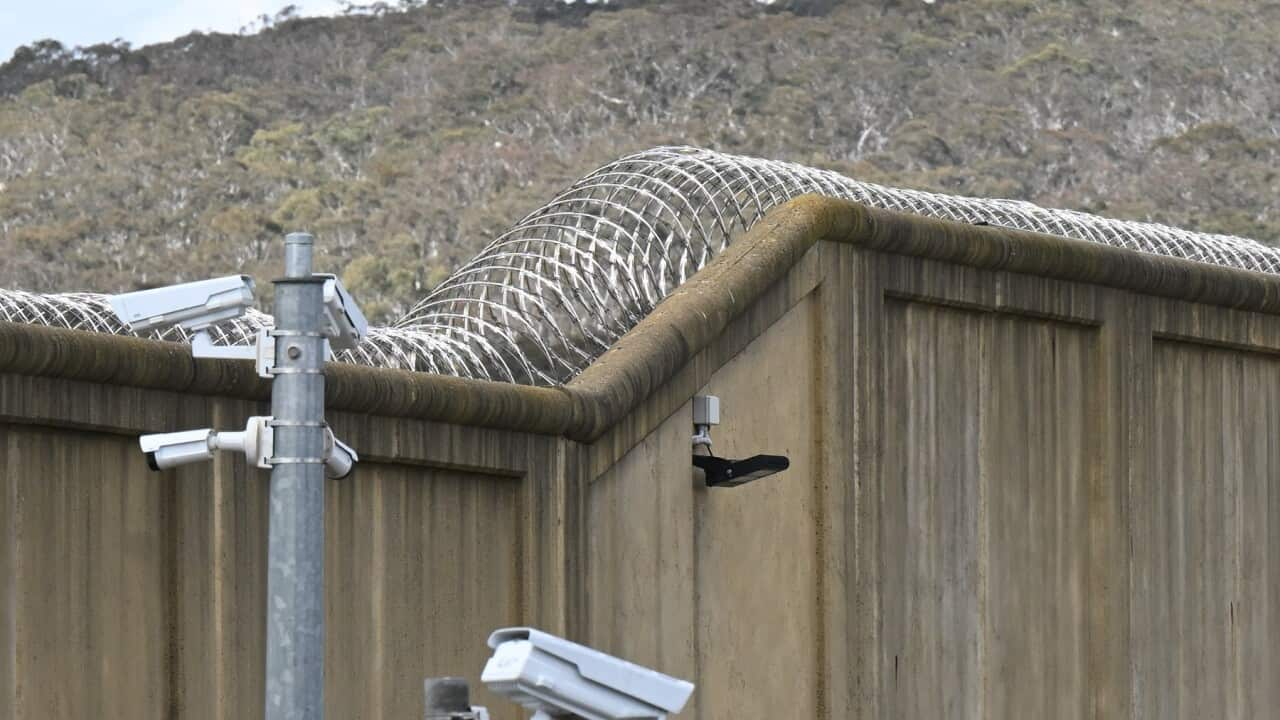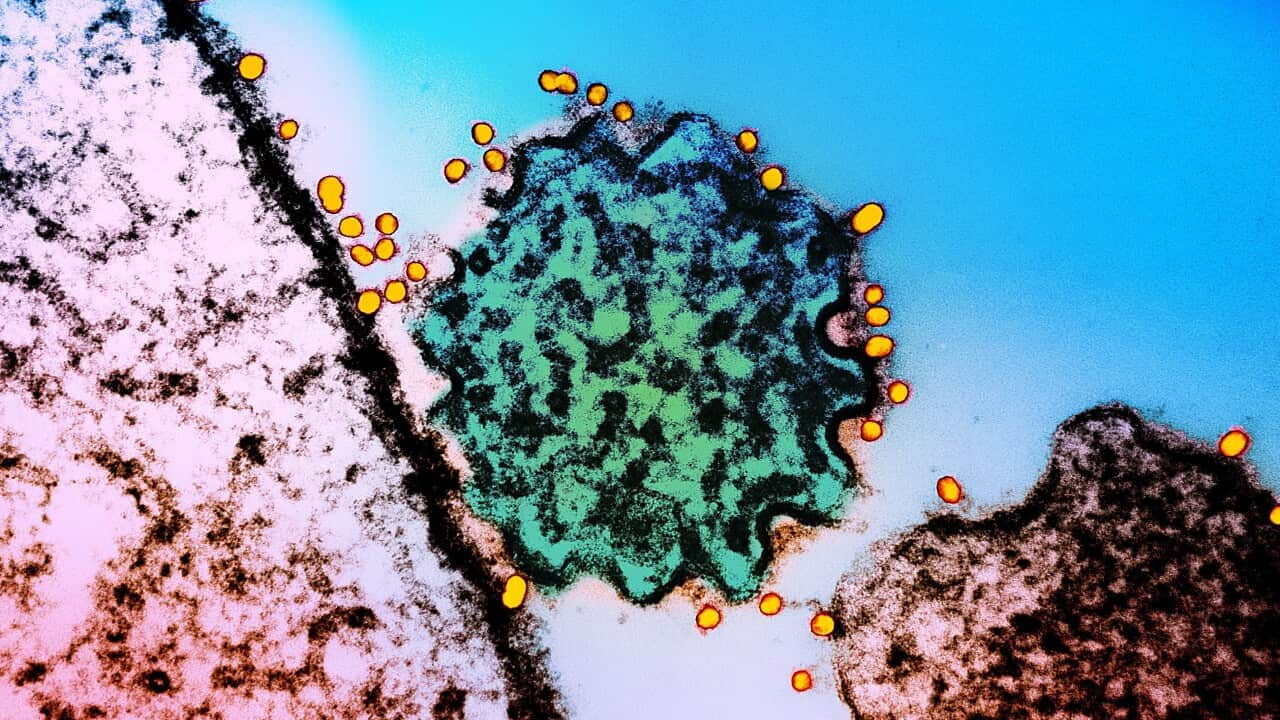Listen to Australian and world news, and follow trending topics with SBS News Podcasts.
TRANSCRIPT
"The Secretary-General welcomes the announcement yesterday by US President Trump, intended to achieve a ceasefire and sustainable peace for Gaza and for the region. He further appreciates the important role of Arab and Muslim states in working to this end. It is now crucial that all parties commit to an agreement and its implementation."
That's Farhan Haq, the deputy spokesman for the United Nations Secretary-General Antonio Gutteres.
He says Mr Gutteres appreciates the role of Arab and Muslim states in the plan, and says it's crucial that all parties commit to an agreement and its implementation.
"The Secretary-General reiterates that our priority must be to ease the tremendous suffering caused by this conflict. He once again reiterates his call for an immediate and permanent ceasefire, unfettered humanitarian access across Gaza and for the immediate and unconditional release of all hostages."
There are hopes for a two-state solution.
"He hopes that this will create the conditions allowing for the realisation of the two-state solution. The United Nations remains steadfast in its commitment to supporting all efforts that promote peace, stability, and a more hopeful future for the people of Palestine and Israel and across the region.”
Meanwhile a source close to the process told CBS News Hamas and other Palestinian factions are leaning toward accepting President Trump's plan to end the war in Gaza.
The source says Hamas will present the group's response to Egyptian and Qatari mediators soon.
The spokesman for Qatar's Foreign Ministry, Majed Al-Ansari says Qatar mediators will review the plan.
"Yesterday, through meetings held here in Doha with the Hamas negotiating delegation, the State of Qatar and the Arab Republic of Egypt submitted the plan (US President Donald Trump's peace plan). The negotiating delegation (Hamas negotiating delegation) promised to study it responsibly, which is what is happening now. Even today, there will be another meeting with the Turkish side, also with the negotiating delegation, with the aim of consulting on this plan and to push towards, as we said, an end to this war through this plan."
Upon returning to Israel, Prime Minister Benjamin Netanyahu presented the terms of the peace plan to his cabinet.
"I have just returned from the United States on behalf of the government and the citizens of Israel. At the UN, I presented the truth about the State of Israel, its citizens and soldiers."
He shares his plans for the release of Israeli hostages in Gaza.
"In Washington, I agreed with President Trump on a plan for the release of all our hostages, and the achievement of all the war goals we set. I will provide a more detailed report to both the members of the government and the members of the cabinet."
There were mixed reactions from his government ministers.
The country's Finance Minister, Bezalel Smotrich says the plan is a historic missed opportunity that will end in tears.
In a Jerusalem Post interview he says its "an act of willful blindness that ignores every lesson of October 7."
The publication says his party - the Religious Zionist Party - is expected to meet to determine its next move and will then announce its position.
The peace plan also includes a "board of peace" led by Mr Trump to oversee the proposal's implementation.
He announced former British Prime Minister Tony Blair will be a part of the board, which drew criticism from residents across the Middle East, who recalled his involvement in the Iraq war.
But other governments welcome the proposal.
Pilar Alegria is Spain's government spokeswoman.
"We naturally welcomed that peace proposal put forward by the United States. We have always said so. Spain will, of course, do everything in our power to achieve a definitive ceasefire, a permanent ceasefire, for the hostages to be freed, of course, and for humanitarian aid to arrive."
Russia's Kremlin spokesman Dmitry Peskov says they hope this will pave the way for other events in the Middle East.
"We do want this (Trump's) plan to be implemented, and we hope it will help steer events in the Middle East towards peace. If you're asking whether the Russian Federation is participating in this plan — no, it is not. There have been no signals from the Americans about it. We maintain our contacts with all the sides of the conflict."
In Australia, some Australian Palestinian advocates have criticised the proposal, despite the federal government supporting it.
Prime Minister Anthony Albanese welcomes the peace plan, which he says he discussed with other world leaders during the past week while in the United States and United Kingdom.
But Australia-Palestine Advocacy Network president Nasser Mashni says the plan offers no justice or peace.
Mr Mashni argues there are no security guarantees for Palestinians because Gaza would be disarmed, while Israel would be allowed to keep its weapons.
Since the October 7 attack, Israel has bombarded the Gaza strip.
It comes as a significant escalation in the long-standing conflict between Israel and Hamas.
Gaza's Health Ministry has reported more than 66,000 people have been killed in the enclave since the latest escalation of the conflict.
According to the Israeli government, more than 1,200 people, including an estimated 30 children were killed and over 200 hostages were taken.
